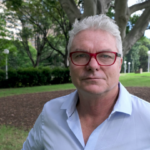With McBride and Boyle Fried, Dreyfus Commits to Whistleblower Protections

Federal attorney general Mark Dreyfus delivered the keynote speech at the Australian Public Sector Anti-Corruption Conference in Sydney on Wednesday, in which he promised to introduce a bill to “make priority amendments” to the Public Interest Disclosure Act 2013, by the end of the year.
The PID Act was drafted by Dreyfus during his earlier stint as AG in 2013, under the Rudd government. The 2016 Moss review of the legislation found it was lacking. And the current chief lawmaker made a preelection promise to overhaul the laws if elected back to office.
The irony regarding the attorney general making this announcement now is that two of the three whistleblowers that Dreyfus inherited the prosecutions of, from former AG Christian Porter’s time, were recently made to put their public interest disclosure defences under the pre-reform laws.
The bill Dreyfus has just pulled out of his back pocket to pass in the next two weeks contains only priority reforms, and the second stage will involve redrafting the PID Act to address its “underlying complexity” and to “provide effective and accessible protections to public sector whistleblowers”.
Supporters of McBride and Boyle have long been petitioning Dreyfus to drop their prosecutions.
This new development begs the question as to why our attorney general wouldn’t have at least intervened and paused these cases to provide these men who exposed corrupt practices with a better chance at defending themselves under his more just post-amendment PID Act.
Bipartisanship on coverup
The third whistleblower prosecution that Dreyfus was heir to involved ACT barrister Bernard Collaery. It wasn’t protected under the PID Act, as it dealt with information derived from an intelligence agency, and the current laws specifically don’t protect whistleblowing of that nature.
But what many perceived as the revenge prosecution of Collaery had the highest profile, as it implicated high-up Howard government officials in the bugging of the cabinet offices of Timor-Leste, then the newest and poorest nation on Earth, to gain advantage in oil and gas treaty negotiations.
And while his co-accused, former ASIS agent Witness K, eventually gave up and pleaded guilty, Collaery, an ex-ACT attorney general himself, was making headway in challenging some of the never-before-used national security secrecy measures that applied to his case so they’d be removed.
When the Albanese government took office, one of the key acts it could take to display to the Australian constituency that it was no Morrison administration was to drop the prosecution against Collaery: a long-time supporter of the Timor-Leste independence cause.
And AG Dreyfus intervened and dropped the Collaery witch hunt. However, he then stunned whistleblower supporters by continuing the Coalition’s crusade to bury the court transcript relating to Collaery’s successful appeal to lift the secrecy measures shrouding his prosecution.
Bipartisan persecution
In an August letter responding to the Alliance Against Political Prosecutions querying why he doesn’t drop the cases against ATO whistleblower Richard Boyle and ex-ADF lawyer David McBride, Dreyfus said the power he has to take that action is only for “very unusual and exceptional circumstances”.
Section 71 of the Judiciary Act 1903 (Cth) provides the attorney general with the power to “decline to proceed further in the prosecution” of a person “under commitment upon a charge of an indictable offence against the laws of the Commonwealth”.
So, it might be likely that rather than not actually having the power to intervene in these whistleblower cases, the reason Dreyfus is not doing so is that Labor, like the Coalition, wants to pursue both Boyle and McBride.
These two whistleblowers, the AG continues in his letter, “are seeking to rely on the protections within” the PID Act. “The question of the applicability of immunities under the PID Act to their particular circumstances is a matter for the courts to determine.”
After the government applied suppression orders attempting to close parts of Boyle’s PID defence hearings were lifted, the case concerning his exposing dodgy tax office practices went ahead under the current legislation that lacks adequate protections last month.
Still waiting on the outcome, if his defence fails, Boyle will stand trial facing 24 criminal charges next year, for exposing an unjust practice by a government agency that was brought to a halt once a light was shone upon it.
Maximum intervention
But Boyle’s PID proceedings seem almost gentle when compared to the complete onslaught ex-military lawyer David McBride faced when he turned up to the ACT court to present his public interest disclosure defence for exposing Australian war crimes in Afghanistan to the public.
Set for 27 October, McBride’s legal team had to pull out at the last minute as not only was the prosecution challenging their only two witnesses, but a public interest immunity (PII) order was placed on the case, which meant the government could remove any piece of defence evidence.
As McBride’s lawyer Mark Davis told Sydney Criminal Lawyers not long after the court fiasco, as Dreyfus had placed a national security order on the case prior to the PII, 80 percent of proceedings were set to be held behind closed doors anyway.
Davis pointed out that Dreyfus has said it would be inappropriate for him to intervene in a criminal prosecution, like McBride’s, but the irony is the AG controls “the national security information orders”, so it’s his decisions that have “utterly encumbered” his team since the case began.
One of the two witnesses the government sought to challenge was Professor AJ Brown, an academic known to be the preeminent expert on the PID Act, and being quite the critic of the laws, one can only assume that something he might have said may have irked the government.
Opaque government
Of course, those who have been calling for reforms to PID whistleblower laws since they were enacted near on a decade ago, welcome the attorney general’s announcement that he will be overhauling his own laws.
Yet, at present, it’s unsure which of the 33 recommendations made by the 2016 Moss report will be prioritised. Although what is certain is that the priority measures are those that will help facilitate the operation of the National Anti-Corruption Commission (NACC) from mid-next year onwards.
And despite the fact that Dreyfus’ first shot at the PID Act wasn’t ideal, we can rest assured that his new take will prioritise the protection of those who expose public sector corruption, rather than focus on protecting those participating in the corrupt practices as the laws do that stand now.
The reason for this surety is Dreyfus has made good on the promise to create a federal integrity watchdog with teeth, except for one aspect, which is its default will be closed proceedings, which strangely was the chief complaint made about the Morrison government’s version.
“I am working closely with my parliamentary colleagues to see the National Anti-Corruption Commission legislation passed by the end of this year,” Dreyfus said during his Wednesday address.
“It will have the power to hold public hearings,” he added a few lines later, “where it is in the public interest and exceptional circumstances justify doing so.”







